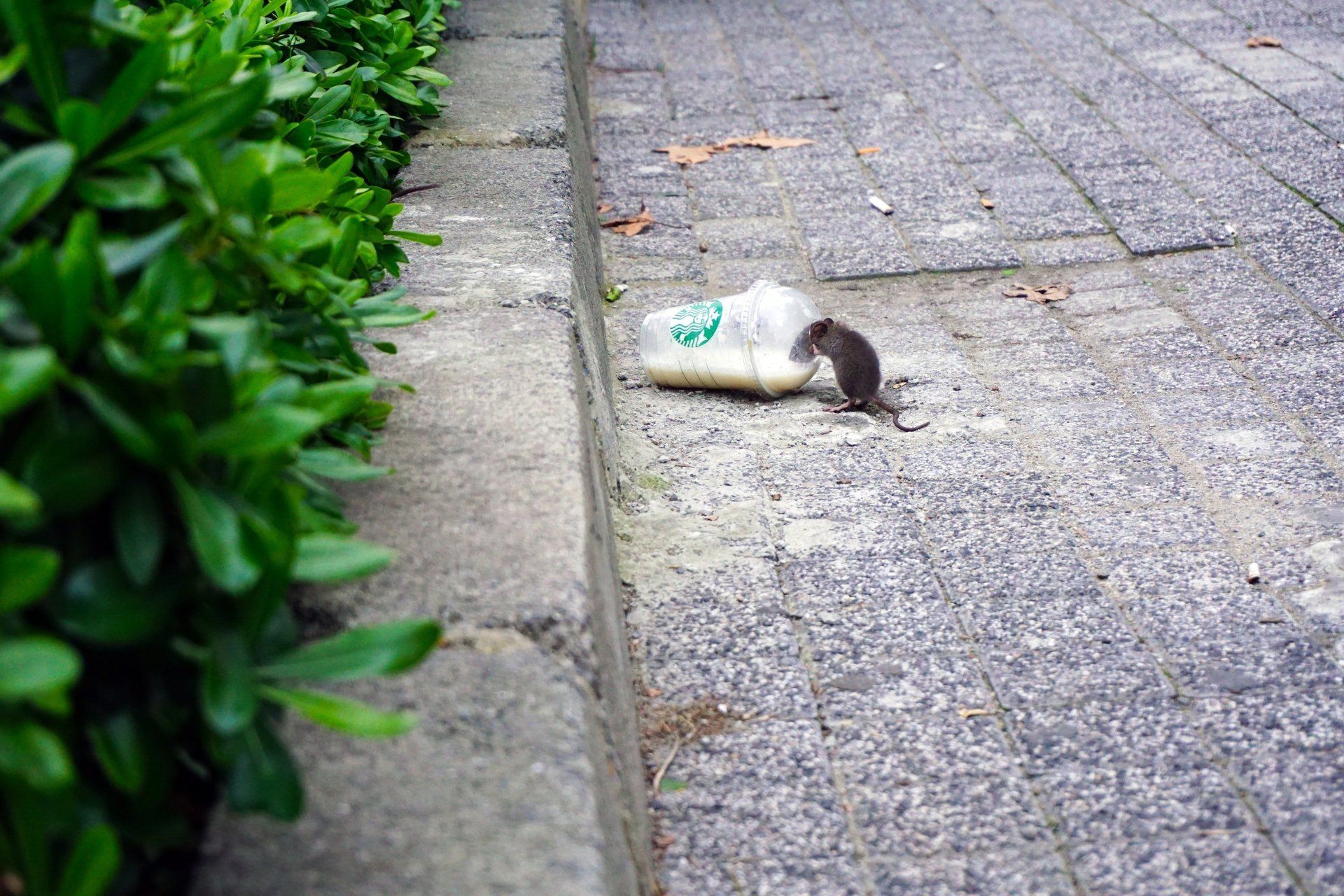When you think of rodents, many different images come to mind. Some seem cute and harmless such as beavers and chipmunks. There are even cartoons that make these critters seem innocent. But make no mistake, if you see rodents around your house, they are most likely up to no good.
Rodents are typically small animals with short limbs and long tails. They have sharp front teeth that grow continuously throughout their lifetime. There are several thousand species of rodents. The ones that are most bothersome to homeowners include mice, rats, squirrels, chipmunks, porcupines, beavers, and rabbits. Rodents fall into a handful of categories such as arboreal, those that live in trees, fossorial, those that spend most of their time underground, and semi-aquatic, those that spend a portion of their time underwater.
Rodents use their ever-growing sharp incisors to gnaw food, dig holes, and defend themselves. Because their teeth never stop growing, the animal must continue to wear them down so that they do not grow long enough to pierce their skull. As the teeth grind against each other, a sharp enamel edge is formed. These teeth serve them well to do all sorts of damage.
Your home and property provide perfect sources of food and lodging for many rodents. The less invasive types of rodents such as chipmunks and rabbits, cause nuisance problems outside your home by destroying vegetation and plant-life. However, more concerning are the rodents that insist on sharing your living quarters, such as mice, rats, and squirrels. These filthy creatures can cause all sorts of problems in and around your home, including drawing in other nuisance wildlife.
They are capable of structural damage to homes and virtually any building through gnawing and nest-building. For instance, mice can chew on anything they see as useful in building their nests; wood, paper, and cloth. They can dig into insulation inside walls and attics. It's bad enough to know that rodents take up residence inside your home, but they can also cause more extreme damage, such as fire, by chewing their way through wire insulation.
Mice, rats, and squirrels get inside your home and wreak havoc. While eating and breeding, they are contaminating your food with urine, droppings, and hair. If a food item comes in cardboard or paper, it's a bonus. The packaging can be used for nesting and the food inside for nutrition. Rodents can spread some pretty severe diseases, such as:
Lymphocytic Choriomeningitis (Lcm)
Roughly 5 percent of house mice throughout the United States carry LCMV and can transmit the virus. This can become a problem for homes that have rodent pets such as hamsters and gerbils. While the pets are not the natural carriers, they can become infected with LCMV from wild mice. In some cases, infections have come from contact with pet mice and rats. Exposure to saliva, droppings or urine from infected rodents can cause infections to occur.
Tularemia
Rabbits, hares, and other rodents are extremely prone to tularemia. They often die in large numbers during outbreaks. Humans can become infected through several routes, including tick and deer fly bites, skin contact with infected animals, and ingestion of contaminated water.
They may not look very smart, but rodents are extremely intelligent. They learn to avoid poisoned baits, which makes them troublesome pests to deal with. Because laboratory mice and rats are widely used as scientific models, we've discovered quite a bit about their ability to learn. For example, laboratory rats can be trained to differentiate between specific tones by pressing one lever to receive a reward, and another to avoid receiving an electric shock. We've all heard the phrase "build a better mousetrap." This likely refers to the rodent's ability to learn quickly by way of trial and error. They're often one step ahead of us. That is why you should leave the elimination of rodents to us, the professionals at Veteran's Pride Wildlife Control. We are veteran owned and operated, servicing the Metro East and St. Louis areas. Contact us today for an inspection.

